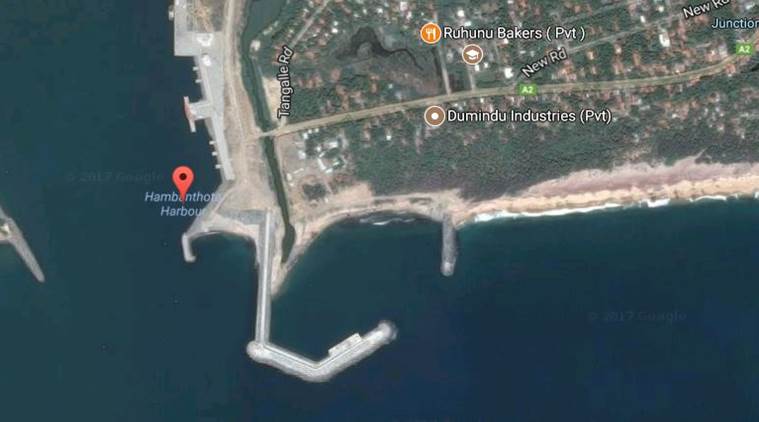Hambantota International Port, a Public Private Partnership project (PPP) between the Sri Lanka Ports Authority and China Merchant Port Holdings is currently evaluating the options of handling containers.
In addition, the bunker facility at the port will be operated by China’s Sinopec Fuel Oil Sales Co. Limited (SFO).
“We’re all saying that the port of Colombo is congested but there is more room for efforts to be made for the three terminals to cooperate and that cooperation can definitely create more capacity until such time the East Container Terminal (ECT) comes on track. I firmly believe that cooperation between the three terminals is a must,” Tissa Wickramasinghe, Chief Operating Officer at the Hambantota International Port Group (HIPG) told the German-Sri Lankan Logistic Conference held in Colombo yesterday.
He said further even shipping lines as a stakeholder need to re-look at that and see how they can cooperate with the Colombo Port to achieve this objective.
“With the ECT going to be operated by another fourth party, there will be four players in the market. In such a scenario, Sri Lanka Ports Authority will be the land lord, shareholder, competitor and de facto regulator and I don’t think that’s good idea.” he said.
All stakeholders need to have a look at that and there has to be some sort of third party intervention to ensure that there is a fair and level playing field for everyone to garner more benefits.” he said.
Iqram Cuttilan, Managing Director of Aitken Spence Shipping Ltd and, the Chairman of Ceylon Association of Shipping Agents (CASA) said, Sri Lanka needs to fast track the development of the East Container Terminal (ECT) to retain its competitive position in the region.
Noting that India has embarked on a massive project to increase the capacity of its ports, he said Sri Lankan government and the private sector need to get together to push infrastructure development and to get the port terminals up and running ahead of time.
“We need to be ahead of the game. If we fall back, the shipping lines will look for alternatives and will go somewhere else. And getting them back is going to be an absolute difficult proposition,” he said. Speaking further he said the Colombo Port was ahead of the game up to 1990s, but there after, he noted that Indian ports have been developed quite rapidly. “So, if we don’t add capacity or additional infrastructure, we’re going to be behind and they’re going to take us over,” he said.
“Especially, if we don’t get the East Container Terminal (ECT) on track within this year, which has been idling for the last four years, we’re going to lose our competitive position and Indian ports are going to take over. We have to be always mindful of the fact that Indian ports are getting bigger and deeper and they’re going to improve the efficiency in a big way.”
Meanwhile, German Vice Minister Federal Ministry of Transport and Digital Infrastructure , Steffen Bilger, who is on an official visit to Sri Lanka with a high powered delegation of German Industry and Commerce, speaking at the German- Sri Lankan Logistics Conference held in Colombo yesterday said that both countries are interested in further development of cooperation in diverse areas to create much needed trade and investment links between the two countries.
Currently, both countries are working in the field of renewable energy, vocational training, trade, maritime sector and so on. He added that the expansion of the Colombo Port is progressing well and Sri Lanka is blessed with other ports such as Trincomalee and Hambantota and so on.
“This creates much potential for both Sri Lankan and German companies,” he said.







